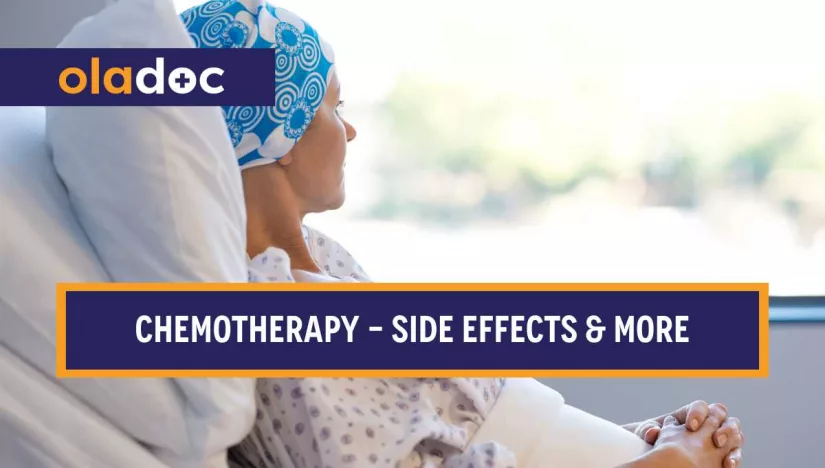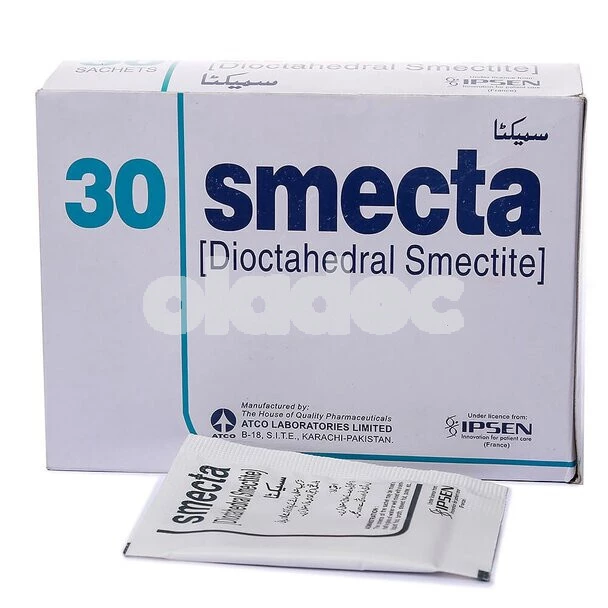Getting a cancer diagnosis can turn your life upside down. Though there is no definitive cure for cancer, treatments like Chemotherapy can help eliminate cancerous cells in your body. Chemotherapy has severe side effects that may decrease the quality of your life, lower your immunity, and cause serious health complications. Moreover, chemotherapy sessions can linger from six months to a year. Keep reading to know more!
Table of Contents
What is Chemotherapy?
Chemotherapy, or “chemo,” is a treatment characterized by using anti-cancer drugs to destroy rapidly growing cancer cells in the body.
The success of Chemotherapy may depend on the type of cancer, stage of cancer, location of cancer cells, previous cancer treatments, and your treatment preference. Chemotherapy can be used alone or with other treatments.
How does Chemotherapy work?
Chemotherapy works by destroying fast-growing cells in the body, such as cancer cells, thereby preventing them from dividing and spreading. It can work throughout the body. A major drawback of this treatment is that it may also affect fast-growing, healthy cells in the body leading to side effects such as hair loss.
Uses of Chemotherapy
The decision to take Chemotherapy depends on the severity of your disease. It can provide benefits in numerous ways at different stages of cancer. The Best Oncologist in Rawalpindi can guide you on why you may need it. Following are some ways Chemotherapy helps increase the life of cancer patients:
1. To treat cancer
Chemotherapy that can be used on its own to cure cancer by destroying cancer cells in your body is known as curative Chemotherapy. It may demolish the tumor cells to the extent that they may no longer be identifiable in your body. The goal is to stop cancer from recurring, but, for some people, cancer may recover after Chemotherapy.
2. To shrink tumors
Chemotherapy can reduce tumors to a small size and make them easily removable during surgery. Your doctor may suggest chemotherapy sessions before surgery or radiation to reduce the size of the cancerous tumor cells. This procedure is known as neoadjuvant Chemotherapy.
3. Destroying leftover cancer cells
Chemotherapy can be used after surgery or radiation to eliminate cancerous cells that remain after the surgical removal of the tumor. It is called adjuvant Chemotherapy.
4. Relieve cancer symptoms
In instances when Chemotherapy is not able to cure cancer, it can relieve cancer symptoms. This type of Chemotherapy is known as palliative chemotherapy. In addition to relieving cancer symptoms, it may also slow the progression of the disease and give the patient some more time.
5. Aid in treating other diseases
The use of Chemotherapy is not just for cancer. Patients choosing to get stem cell treatment for bone disease may need Chemotherapy to prepare them. A low dose of Chemotherapy may also be advantageous for immune disorders like lupus.
Ways to administer Chemotherapy
Chemotherapy drugs are given in different ways depending on the requirement. Chemotherapy can be given in the following ways:
1. Direct infusion
In this method, Chemotherapy is injected directly into the vein. It is called intravenous (IV) therapy. It may take minutes or hours. It may need to be repeated after a few days or weeks, depending on the intensity of the disease.
2. Pills
Oral Chemotherapy can also be given orally, in the form of pills, liquid, or capsules. You can take them at home, and due to this, they have become more common. Oral chemo can be given as a daily dose or less frequently according to the need. Your doctor can guide you on the frequency and storage of your chemotherapy pills.
3. Shots
Chemotherapy can also be like other shots in your arm or hip.
4. Creams
Chemotherapy creams are also available and usable in case of skin cancer. You need to apply the cream over the cancerous area of your skin.
5. Into the artery
Intra-arterial Chemotherapy requires pushing the blood directly to the blood by injecting it into the arteries.
The location of administering Chemotherapy depends on the method your doctor suggests. Most types of chemotherapies are conducted at a cancer treatment hospital.
Some treatments, such as oral and topical Chemotherapy, may not require a visit to the hospital and can be taken at home. Your doctor will give you a schedule tailor-made for you. They may adjust the dosage depending on how your body reacts to the treatment.
Chemotherapy side effects
While Chemotherapy can destroy cancer cells, it cannot differentiate between healthy and cancerous cells. It may destroy healthy cells that can cause devastating side effects. These side effects most likely go away after Chemotherapy is complete. The side effects can be controlled treatments. The side effects of Chemotherapy include:
1. Hair loss
Your body makes hair follicle cells at a rapid pace. They are more vulnerable to Chemotherapy as chemotherapy targets quickly growing cells.
Patients getting chemotherapy treatment may lose hair from the head and other places, such as arms or legs. You can wear a wig or cap to cover the baldness. The hair loss stops, and your hair starts to grow back after your chemo treatment is complete.
2. Anemia
Anemia is a blood disorder in which you have a low count of red blood cells. Red blood cells are responsible for distributing oxygen from the lungs to the body.
Chemotherapy cannot distinguish between cancerous cells and other cells and can destroy white blood cells and red blood cells in your body. The loss of red blood cells can cause anemia. It can make you feel tired. Adding iron-rich foods or supplements to your diet can help prevent anemia.
3. Weak immunity
White blood cells ward off infections in your body. As Chemotherapy lessens the white blood cells, you become more susceptible to infections and diseases because your immunity is weak and unable to fight viruses and infections.
If you are taking chemotherapy treatment, take extra precautions to stop the spread of germs. Wash your hands properly, avoid large gatherings and stay away from sick people because they may infect you too, especially if it is contagious.
4. Nausea and vomiting
Nausea and vomiting are also common after getting Chemotherapy. It can begin as soon as you start Chemotherapy or after some time. Anti-nausea drugs can help make you feel better. Eating smaller portions of food can also help with these side effects.
5. Digestive issues
Digestion problems, such as constipation or diarrhea, can occur after Chemotherapy by eliminating cells that aid digestion. Passing a stool can be hurt during Chemotherapy.
Over-the-counter (OTC) medicines can help ease bowel movement and make it less painful. Maintaining good hydration levels can also help soften your stool and make it easier to pass. It can also prevent constipation that you get as a result of chemo.
6. Bruising and bleeding easily
Platelets help the blood clot and stop bleeding. Chemotherapy lowers the platelets that may cause excessive bleeding. To counter this, take extra care by wearing gloves while doing housework or gardening.
Take precautions to avoid falling or tripping because it may cause bruises and bleeding. Contact your doctor immediately if you notice any bruises or bleeding.
7. Mouth sores
Mouth sores, also known as mucositis, are usual during Chemotherapy due to inadequate platelets in the blood. It can cause sores in the mouth and throat. They can become infected or cause bleeding.
Mucositis gets better once the chemo is over. Till then, you can use a soft truth brush, suck on ice or take OTC medicines to relieve the pain due to the sores.
8. Loss of appetite
Chemotherapy can kill your appetite due to other side effects, such as nausea. You may feel full after eating a little food. In addition to not getting enough nutrition, your weight may go down drastically. Keep trying to eat in small portions and eat healthy food. If you do not feel like eating, ensure that you drink enough liquid in your body.
9. Pain
Getting chemotherapy treatment can be stressful and is an overall unpleasant experience. It can also lead to stomach aches, muscle aches, headaches, and discomfort in other areas. It can last for a short time or be long-lasting that may come and go. Ask your doctor for guidance and ways to manage the pain.
Your doctor can prescribe medicines and physical therapy. Going through pain and dealing with so many emotions related to cancer can take a toll on your mental health, so counseling may also be helpful in this regard.
Conclusion
Chemotherapy is a treatment primarily used for cancer but can also be used for other diseases, such as autoimmune disorders. Chemotherapy is not a complete cure for cancer. Chemotherapy decreases the spread of cancer cells or shrinking tumors. It is also used for removing leftover cancer cells after surgery or slowing cancer. The treatment may or may not be successful.
Chemotherapy is given in the form that is most likely to cure the type of cancer you have. It can be given through direct injection to the vein, as a shot, a pill, or a cream. The frequency and dose may also depend on the stage and type of cancer.
Chemotherapy also has many side effects that may go away after treatment. Nonetheless, going through Chemotherapy can be a very uncomfortable experience, especially with the side effects. It can decline your quality of life. Discuss with your doctor the pros and cons of Chemotherapy for cancer you have and decide on whether you want to go through with it or not.
Consult an Oncologist in Lahore today for the treatment of cancer through oladoc.com.






